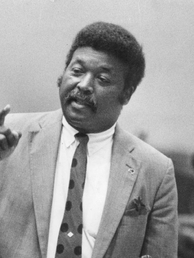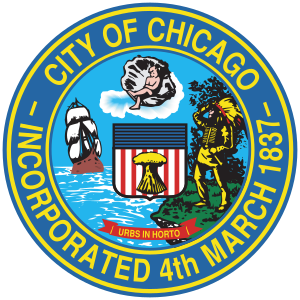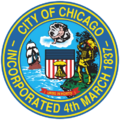Robert Shaw (Illinois politician) facts for kids
Quick facts for kids
Robert Shaw
|
|
|---|---|
 |
|
| Commissioner of Cook County Board of Review from the 3rd district | |
| In office December 1998 – December 2004 |
|
| Preceded by | Seat established |
| Succeeded by | Larry Rogers Jr. |
| Chicago Alderman from the 9th Ward | |
| In office May 1987 – December 1998 |
|
| Preceded by | Perry H. Hutchinson |
| Succeeded by | Anthony Beale |
| In office May 1979 – May 1983 |
|
| Preceded by | Alexander A. Adduci |
| Succeeded by | Perry H. Hutchinson |
| Personal details | |
| Born | July 31, 1937 Fulton, Arkansas, U.S. |
| Died | July 22, 2021 (aged 83) South Holland, Illinois, U.S. |
| Political party | Democratic |
| Relatives | William Shaw (twin brother) |
Robert Shaw (July 31, 1937 – July 22, 2021) was an American politician. He served as a City of Chicago Alderman for the 9th ward. He held this role for two terms, from 1979 to 1983 and again from 1987 to 1998. Shaw also worked as a commissioner on the Cook County Board of Review from 1998 to 2004.
For over 25 years, Robert Shaw and his twin brother, William, were very important political leaders. They were known as "kingmakers" in Chicago's southern suburbs. This meant they had a lot of power in deciding who would win elections. However, their influence became less strong in the late 1990s and early 2000s. Jesse Jackson Jr. became a new key political figure in the area. Both Robert and William Shaw were sometimes seen as controversial figures. After losing his re-election for the Cook County Board of Review in 2004, Robert Shaw often ran for different political jobs.
Contents
Early Life and Education
Robert Shaw and his identical twin brother, William, were born on July 31, 1937. They were born in Fulton, Arkansas, and spent their early years in nearby Hope, Arkansas. Robert Shaw was Black. When he was a child, his family moved to St. Louis, Missouri. In 1952, Shaw's family moved again to Chicago, Illinois, and settled on the city's West Side.
Shaw studied liberal arts at Kennedy–King College.
Early Political Work
Shaw and his brother learned about politics by working in the 24th Ward Regular Democratic organization. This group was led by Arthur X. Elrod on Chicago's west side. Robert Shaw started his political work at age seventeen as a local ward captain. He also worked as a ward captain for Benjamin F. Lewis. In 1969, Shaw moved to the South Side of Chicago, and lived in the Roseland neighborhood.
From 1975 to 1978, Shaw worked as an executive at the Illinois Department of Labor. He focused on affirmative action and workers compensation.
Serving on the Chicago City Council
Robert Shaw served two times as an alderman for Chicago's ninth ward. In 1975, Shaw first ran for the Chicago City Council. He tried to win against the current 9th Ward alderman, Alexander Adducci, but he did not succeed.
First Term (1979–1983)
Shaw was elected to the Chicago City Council in 1979. This time, he won against Adducci. During the campaign, there were accusations that Shaw's supporters had created a fake letter. This letter made Adducci, who was white, seem racist. In 1979, the Illinois Board of Elections looked into claims that Shaw had broken campaign finance rules.
Shaw became well-known as a key African American supporter of Mayor Jane Byrne. Some Black independent politicians criticized him. This happened when he voted for Byrne's plan to redraw the city's wards. A federal court later said this plan was unfair to African Americans and Latinos. When Black protesters came to the City Council to protest Byrne's firing of Black members from city boards, Shaw asked for the protesters to be removed. He supported Mayor Byrne and Charles Swibel, who led the Chicago Housing Authority.
In 1981, Shaw suggested a law that would change how city jobs were given out. It would have made it easier to hire people based on political connections, not just skills. He worked with Edward Vrdolyak on this idea. Mayor Byrne later stopped this law from happening because many Chicagoans were against it.
Shaw lost his re-election in 1983 to Perry H. Hutchison. His loss was partly because he supported Mayor Byrne over Harold Washington in the mayoral election. Washington won a lot of votes in the 9th ward.
Between Terms
In 1984, Shaw and his brother pushed for a law to require black history to be taught in public schools.
Second Term (1987–1998)
In 1987, Shaw won back his old seat on the Chicago City Council, defeating Hutchison. Hutchison had been accused of taking bribes before the election. For this campaign, Shaw showed himself as a supporter of Harold Washington. Shaw was re-elected in 1991 and 1995. In 1991, he won by only 37 votes against Johnny J. O'Neal.
Shaw strongly supported giving pay raises to City Council members. Shaw often disagreed with civil rights leader Jesse Jackson.

In September 1987, Shaw and another alderman, Allan Streeter, suggested changing the city seal. They wanted to remove the image of a sailing ship. They said it looked like a slave ship and represented "institutionalized racism." They wanted to replace it with a picture of Jean Baptiste Point du Sable, who was an important early settler. Mayor Washington and other Black aldermen supported this idea. However, the change would have cost a lot of money, and some council members disagreed. The city seal stayed the same.
After Mayor Harold Washington's death in office, Shaw helped stop Timothy C. Evans from becoming the next mayor. Instead, Eugene Sawyer won the vote. Shaw also asked for a deeper investigation into Washington's death.
Shaw sometimes made strong statements about race. In 1988, he was criticized for asking about people's ethnic backgrounds at hearings. He was also accused of making comments about "Washington Jews." Shaw defended himself, saying he had good relationships with the Jewish community. He also said that a white person should not be mayor because they had not treated Black people fairly in the past.
During Mayor Richard M. Daley's time, Shaw was somewhat independent. He sometimes criticized the mayor and voted against his budget plans.
In 1990, Shaw proposed a law to ban an AIDS awareness ad campaign. He said the posters, which showed same-sex couples kissing, were "promoting a lifestyle, which I object to." In 1993, Shaw opposed Daley's choice for Chicago city clerk, Thomas Scorza. Shaw had concerns about Scorza's past work.
In 1996, federal investigators looked into Shaw's campaign and ward funds. This was part of a larger investigation called "Operation Silver Shovel."
After leaving the City Council, Shaw supported his son Herbert Shaw to take his place. However, Anthony Beale, who was supported by Jesse Jackson Jr. and James Meeks, won the election instead.
Cook County Board of Review
In 1998, Shaw was elected as a commissioner for the new Cook County Board of Review. He represented the 3rd district. He was re-elected in 2002.
On the board, Shaw often voted with fellow member Joseph Berrios. However, he sometimes disagreed when Berrios and the third member, Maureen Murphy, voted to lower taxes on large properties in downtown Chicago.
Shaw was sometimes called the "reduction commissioner" because he often lowered property tax rates. However, some people criticized him for possibly giving political favors. The Cook County state's attorney's office investigated if Shaw helped his brother get a tax break, but found no wrongdoing. The Board of Review also changed its rules because some of Shaw's staff had reviewed properties they owned themselves.
In 2004, Shaw lost his re-election to Larry Rogers Jr.. Rogers was encouraged to run against Shaw by Jesse Jackson Jr. and James Meeks.
Inspector General of Dolton
In 2006, Shaw's brother William, who was then the mayor of Dolton, Illinois, appointed Robert Shaw to a new job. He became the city's first inspector general, a position that paid $70,000 a year. He also got to use a city car. Some people in the village were upset, seeing it as nepotism (giving jobs to family). The Better Government Association called it a "joke on the taxpayers." Shaw's job was to find corruption in the village. However, the mayor and village trustees were not allowed to be investigated.
At the time, federal investigators were watching Shaw himself for possible corruption in Dolton.
Political Influence
For more than 25 years, Robert Shaw and his brother William were very powerful political "kingmakers" in Chicago's southern suburbs. They had strong support from African American voters in the area. Their main rivals were the Jackson family, Jesse Jackson and Jesse Jackson Jr.. The Shaw brothers' influence began to fade in the late 1990s and early 2000s. Jesse Jackson Jr. became the new main political leader.
In 1996, Shaw was elected the 9th Ward Democratic committeeman. In 2000, Anthony Beale won this position from Shaw.
Running for Other Offices
1984 Congressional Race
In 1984, Shaw ran for U.S. Congress in Illinois's 2nd congressional district. He challenged the current congressman, Gus Savage. Shaw placed fourth in the Democratic primary election.
2005 South Holland Village President
In October 2004, Shaw announced he would run for village president (mayor) of South Holland, Illinois. He ran against the current mayor, Don DeGraff. Shaw lost by a very large amount, with DeGraff getting 91% of the votes.
During his campaign, Shaw promised to bring more businesses and jobs to the village. He also accused Mayor DeGraff, who was white, of preventing minorities from working for the village. Shaw claimed DeGraff was an "ultraconservative" and practiced nepotism, but DeGraff denied these claims.
A win for Shaw would have helped his and his brother's political power. However, Jesse Jackson Jr. supported DeGraff in this election.
2006 State House Race
In 2006, Shaw ran for the Democratic nomination for the 29th district seat in the Illinois House of Representatives. He tried to unseat the current representative, David E. Miller. Shaw lost to Miller. This campaign was another attempt by Shaw to regain political power. Miller was supported by Jesse Jackson Jr..
2010 Cook County Assessor Race
Shaw ran for Cook County assessor in 2010. If he had won, he would have been the first African American to hold that office. During his campaign, Shaw mostly criticized his opponent, Joseph Berrios. Shaw came in second out of three candidates in the Democratic primary.
2015 Chicago Mayoral Race
In December 2013, Shaw moved to the Hyde Park–Kenwood area of Chicago. In March 2014, Shaw announced he would run in the 2015 Chicago mayoral election. He was one of the first politicians to say they would challenge the current mayor, Rahm Emanuel. However, he later decided not to run.
During his campaign, he supported having an elected school board. He criticized Mayor Emanuel for closing public schools. He also worried about the city's ability to pay for pension programs for city workers. He promised to fix school closings and benefit cuts for retired workers.
Shaw wanted to bring together African Americans, Latinos, and others who were unhappy with the mayor. He believed he was well-known. After dropping out, Shaw supported Willie Wilson in the election. Shaw also supported Wilson in his 2019 mayoral campaign.
Metropolitan Water Reclamation District Board
Shaw was a candidate in 2016 for the Metropolitan Water Reclamation District of Greater Chicago board. He later withdrew his candidacy. He tried to run again in 2018 but was not allowed on the ballot.
Personal Life
Robert Shaw had two sons and four daughters. From 1999 to 2013, Shaw lived in South Holland, Illinois. In December 2013, he moved to the Hyde Park–Kenwood area of Chicago.
In December 2008, Shaw said he was attacked in Dolton. The charges against the person he accused were later dismissed. In February 2012, Shaw was hospitalized after falling at his home and breaking his nose.
Shaw got COVID-19 in 2021 during the COVID-19 pandemic, but he recovered.
Death
Robert Shaw died from cancer on July 22, 2021, at the age of 83. He passed away at a rehabilitation facility in South Holland, Illinois.
Images for kids



